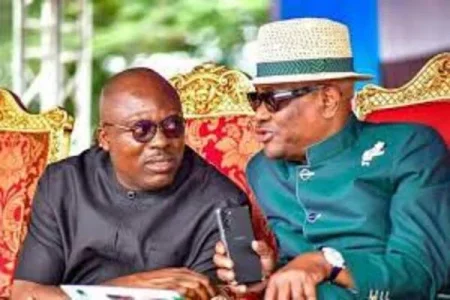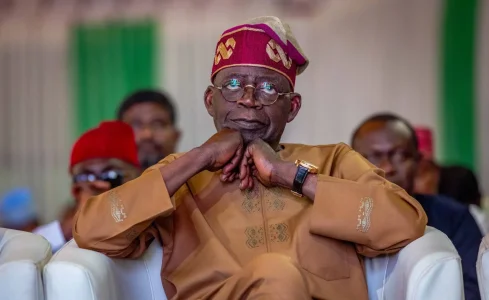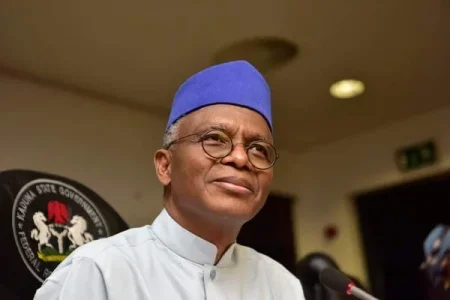
In a shocking turn of events, the carefully orchestrated peace move initiated by President Bola Ahmed Tinubu to quell the political storm between Rivers State Governor Simi Fubara and FCT Minister Nyesom Wike has crumbled, leaving the All Progressives Congress (APC) in disarray. The unfolding crisis has taken a tumultuous turn, marked by the demolition of the state House of Assembly Complex and a significant defection of 27 assembly members loyal to Wike to the APC.
The turmoil began four days ago when the state House of Assembly Complex was abruptly demolished, adding a sinister twist to the already strained relationship between Fubara and Wike. The situation escalated with the defection of a substantial number of assembly members to the APC, creating a seismic shift in the state's political landscape.
In response to the escalating crisis, Tony Okocha, the Caretaker Committee Chairman of the APC in Rivers State, addressed the media at the party's national secretariat in Abuja. Okocha revealed that the peace move orchestrated by Tinubu had irrevocably collapsed, leading to an irreconcilable breakdown. Despite not being directly involved in the negotiations, Okocha expressed the severity of the situation, indicating that whatever transpired had shattered any hopes of a resolution.
The factional Speaker, Edison Ehie, and the four assembly members who aligned themselves with Wike were condemned by Okocha, who labeled their actions as illegal. He asserted that their attempt to pass the budget for the 2024 fiscal year amounted to an act of defiance against the APC.
Adding another layer to the unfolding drama, Okocha disclosed the APC's ambitious strategy to lure Governor Wike into the party. He emphasized that if Wike chose to defect, he would assume a leadership role within the APC in the state.
As the Rivers State political landscape becomes increasingly volatile, the nation watches closely to see how this power struggle will shape the future of the state and the political fortunes of the APC and its key players. The collapse of Tinubu's diplomatic intervention has not only deepened the existing fissures but has also set the stage for a complex and high-stakes political battle in the heart of Nigeria's political landscape




